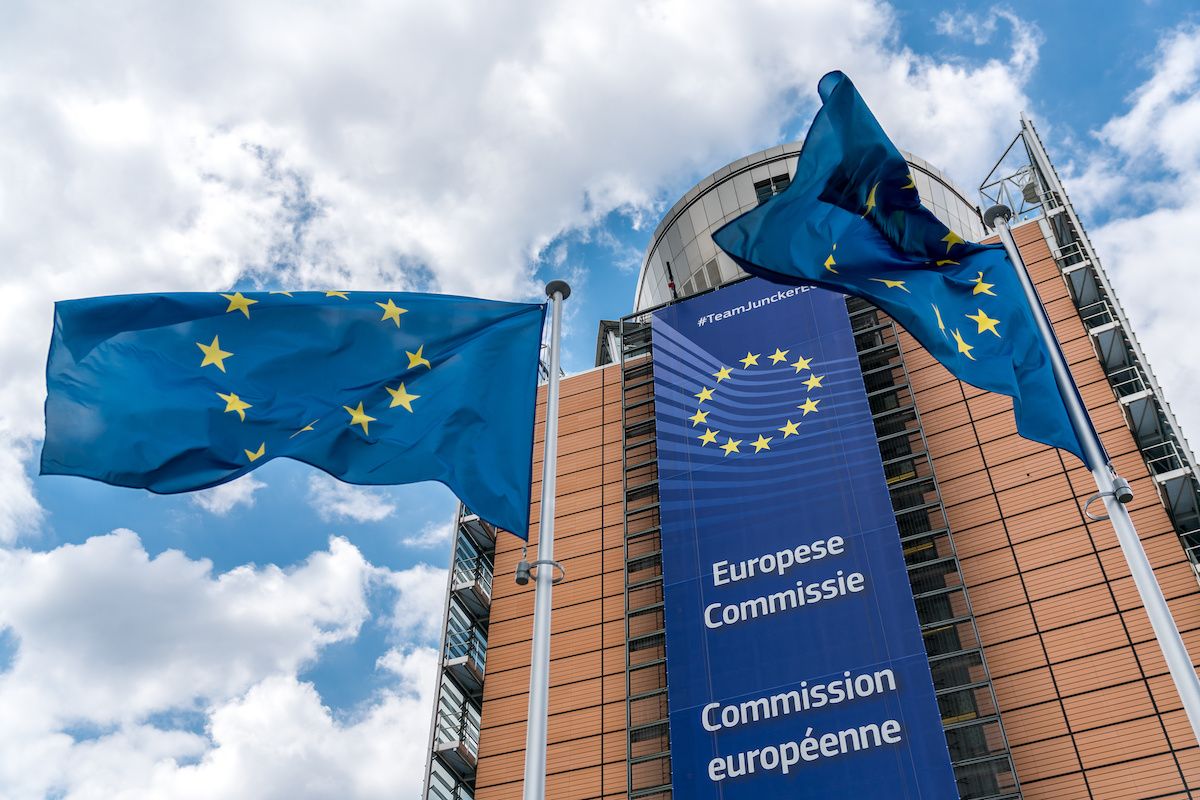- Bone Health
- Immunology
- Hematology
- Respiratory
- Dermatology
- Diabetes
- Gastroenterology
- Neurology
- Oncology
- Ophthalmology
- Rare Disease
- Rheumatology
EC Approves New Biosimilars for Bone and Eye Conditions
The European Commission (EC) approves new biosimilars for osteoporosis and eye conditions, enhancing treatment options and patient access across Europe.
The European Commission (EC) has recently granted marketing authorizations for several new biosimilar medications, expanding treatment options for patients with a range of conditions from osteoporosis and cancer-related bone disease to serious retinal disorders. The approvals include 2 denosumab biosimilars from Organon and its licensing partner Shanghai Henlius Biotech and an aflibercept biosimilar from STADA Arzneimittel.1,2
The European Commission approves new biosimilars for osteoporosis and eye conditions, enhancing treatment options and patient access across Europe. | Image credit: Andrzej - stock.adobe.com

Denosumab Biosimilars to Enhance Bone Care
On September 19, 2025, the EC approved Bildyos (denosumab) and Bilprevda (denosumab), developed by Shanghai Henlius Biotech and Organon.1 These drugs are biosimilars to the reference products Prolia (denosumab) and Xgeva (denosumab), respectively, and are approved for all of the reference products' indications.
Bildyos is indicated in Europe for the treatment of osteoporosis in postmenopausal women and men at increased risk for fracture. It is also approved for treating bone loss associated with hormone ablation in men with prostate cancer and for bone loss linked to long-term systemic glucocorticoid therapy in high-risk adult patients.
Bilprevda is indicated for the prevention of skeletal-related events in adults with advanced malignancies involving bone. Additionally, it is approved to treat adults and skeletally mature adolescents with giant cell tumors of bone where surgical resection is not feasible or would likely result in severe morbidity.
The approval was based on a comprehensive data package demonstrating that the biosimilars are highly similar to their reference medicines in terms of structure, efficacy, safety, and immunogenicity. Nico Van Hoecke, head of international commercial at Organon, stated that the approvals mark a "pivotal moment in expanding access to essential bone care treatments for millions of Europeans" and may help support the sustainability of Europe's health care systems. The EC approvals for these treatments follow recent authorizations in the US. The partnership between the 2 companies dates back to a 2022 agreement granting Organon exclusive global commercialization rights, excluding China.
These biosimilars were also recently approved by the FDA for the same indications earlier this month.3
STADA Gains Approval for Aflibercept Biosimilar
Adding to the recent wave of biosimilar approvals, Germany-based company STADA Arzneimittel announced that the EC granted marketing authorization for Afiveg (aflibercept), a biosimilar to the reference product Eylea (aflibercept).2 Afiveg is approved as a 40 mg/mL solution for injection in both prefilled syringes and vials.
Afiveg is indicated for the treatment of multiple retinal diseases, including neovascular (wet) age-related macular degeneration. This marks STADA’s second approved biosimilar in the ophthalmology space, following Ximluci (ranibizumab), and its eighth approved biosimilar in Europe overall. STADA plans to launch Afiveg in Germany during the fourth quarter of 2025, coinciding with the expected loss of market exclusivity for its reference product, Eylea.
Ian Henshaw, STADA’s global specialty head, commented on the approval, stating, "We look forward to building on the credibility in the specialty ophthalmology sector we have built with biosimilar ranibizumab to expand patient access to aflibercept." The approval comes as STADA's specialty business segment reports strong growth, with biosimilars being a significant driver of its 18% revenue increase in the first half of 2025.
References
1. European Commission (EC) approves Henlius and Organon’s Bildyos (denosumab) and Bilprevda (denosumab), biosimilars to Prolia (denosumab) and Xgeva (denosumab), respectively. News release. Organon. September 19, 2025. Accessed September 19, 2025. https://www.organon.com/news/european-commission-ec-approves-henlius-and-organons-bildyos-denosumab-and-bilprevda-denosumab-biosimilars-to-prolia-denosumab-and-xgeva-denosumab-respectively/
2. STADA expands specialty biosimilars portfolio through European approval for Afiveg (aflibercept). News release. STADA Arzneimittel. September 16, 2025. Accessed September 19, 2025. https://www.stada.com/blog/posts/2025/september/stada-expands-specialty-biosimilars-portfolio-through-european-approval-for-afiveg-aflibercept
3. Jeremias S. FDA greenlights fifth pair of denosumab biosimilars: Bildyos and Bilprevda. The Center for Biosimilars®. September 2, 2025. Accessed September 19, 2025. https://www.centerforbiosimilars.com/view/fda-greenlights-fifth-pair-of-denosumab-biosimilars-bildyos-and-bilprevda
Newsletter
Where clinical, regulatory, and economic perspectives converge—sign up for Center for Biosimilars® emails to get expert insights on emerging treatment paradigms, biosimilar policy, and real-world outcomes that shape patient care.
